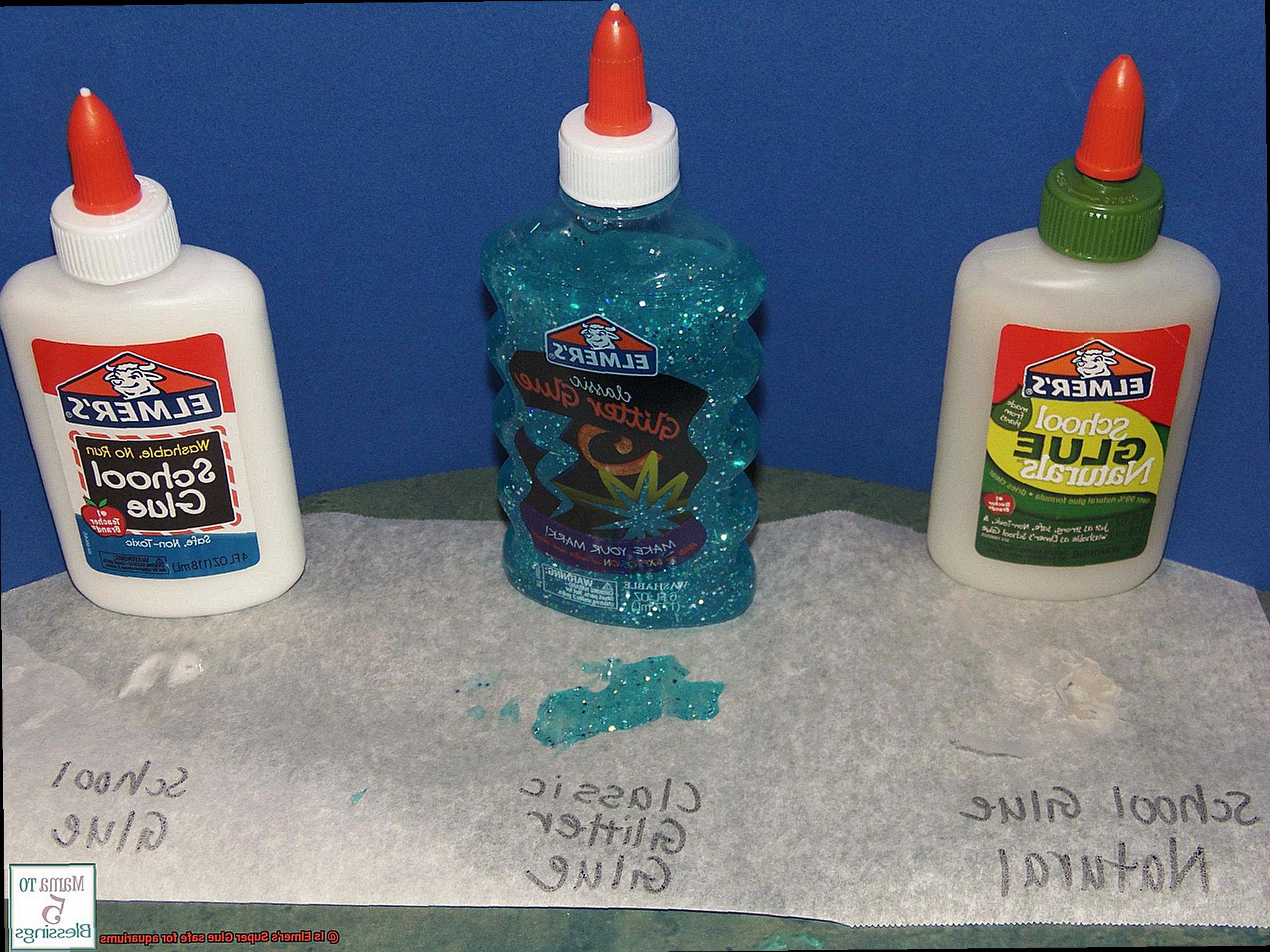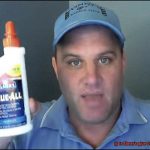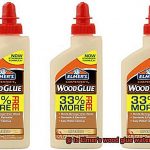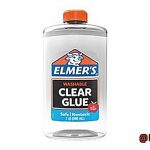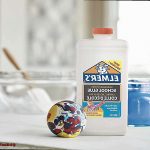Are you a fishkeeping enthusiast who wants to create a safe and healthy environment for your aquatic friends?
Keeping the aquarium hygienic is essential to ensure the well-being of your fish and other inhabitants. But what happens when equipment or ornaments break inside the tank?
The solution is often glue adhesive, but is it safe to use in an aquarium? Elmer’s Super Glue is a popular choice among DIY enthusiasts, but its safety in aquariums has sparked debate among fishkeepers.
Some argue that it can be toxic to fish, while others claim it’s harmless. In this blog post, we’ll explore the safety of Elmer’s Super Glue in aquariums.
We’ll take a closer look at its composition and determine whether it’s non-toxic to aquatic life. Additionally, we’ll discuss proper usage and any possible risks associated with using the glue.
So sit tight and get ready to learn how you can safely use Elmer’s Super Glue in your aquarium.
What is Elmer’s Super Glue?
Contents
This cyanoacrylate-based glue is known for its ability to bond to a variety of surfaces, including plastics, metal, wood, and ceramics, making it a great option for all kinds of aquarium repairs.
There are two formulations available: the gel version and the liquid version. The gel version is thicker and easier to control, while the liquid version is better for bonding larger surfaces. Both types of glue are water-resistant and can withstand exposure to moisture, which makes them perfect for use in underwater environments.
However, it’s important to note that not all types of Elmer’s Super Glue are safe for aquatic life. Some formulations may contain additives or chemicals that could be harmful to fish or other aquatic animals. Therefore, it’s crucial to read the label carefully and look for any warnings or precautions related to aquarium use.
When using Elmer’s Super Glue in an aquarium, it’s important to use it sparingly and in a well-ventilated area. Excessive amounts of glue could potentially harm living organisms if they ingest it or come into direct contact with it. It’s also important to ensure that the glue has fully cured before introducing any living organisms into the tank.
Is Elmer’s Super Glue Safe for Aquariums?
Whether you’re looking to fix a broken decoration or attach plants to a surface, it’s essential to use the right glue. Elmer’s Super Glue is a popular choice for many aquarium owners, but the question remains: is it safe to use in your tank?
One of the primary concerns with using Elmer’s Super Glue in an aquarium is its potential toxicity. The glue contains cyanoacrylate, which can release cyanide gas when exposed to water. Yes, you read that correctly – cyanide gas. However, before you start panicking, it’s important to note that the amount of cyanide gas released by the glue is minimal and not enough to cause harm in small doses.
Another issue with using Elmer’s Super Glue in aquariums is its ability to cloud the water. Nobody wants a cloudy aquarium, right? When the glue comes into contact with water, it hardens and turns white, which can make the water appear cloudy. While this may not be harmful to your fishy friends, it’s definitely not visually appealing.
To minimize these risks, there are some precautions you can take. First and foremost, use only a small amount of glue and apply it sparingly. This will reduce the amount of cyanide gas released into the water and minimize cloudiness. Additionally, it is crucial to allow the glue to dry completely before placing any objects back in the tank. This will give the glue time to harden and prevent it from dissolving in the water.
As with any new product added to an aquarium, it’s always best to test it out in a small area first before applying it to the entire tank. It’s important to remember that while Elmer’s Super Glue can be used in aquariums, it should be used with caution. The potential for toxicity and cloudiness is present, but these risks can be minimized by using the glue sparingly and allowing it to dry completely before placing objects back in the tank.
Understanding Cyanoacrylate-Based Glue
Look no further than cyanoacrylate-based glue, also known as super glue. This adhesive is popular among hobbyists for its fast-drying properties and strong bond. However, before you start gluing away, it’s essential to understand the ins and outs of this powerful adhesive.
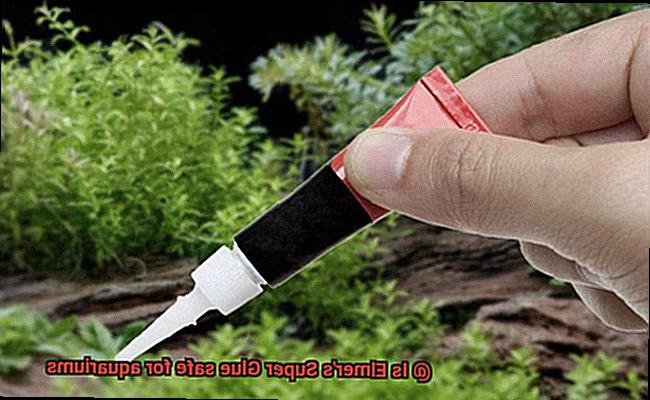
First things first, not all super glues are safe for use in aquariums. Some may contain harmful chemicals or additives that can be toxic to your fish and other aquatic animals. To avoid any mishaps, it’s crucial to read the label carefully and ensure that the glue you choose is specifically labeled safe for aquatic use. Reputable brands like Elmer’s offer aquarium-safe versions of their super glue products.
Even with the right kind of glue, not all applications are suitable for aquarium use. For example, using super glue to attach live coral or other delicate organisms may cause damage or harm. It’s best to consult with a professional or experienced aquarium hobbyist before using super glue in these situations.
When using cyanoacrylate-based glue in your aquarium, it’s important to use small amounts sparingly and let it dry completely before placing objects back in the tank. This way, you can minimize the risks of toxicity and clouding the water.
In summary, understanding cyanoacrylate-based glue is crucial for maintaining a healthy and thriving aquarium environment. Here are some key takeaways:
- Not all super glues are safe for aquarium use.
- Always read the label carefully and look for products specifically labeled safe for aquatic use.
- Consult with a professional or experienced hobbyist before using super glue on delicate organisms.
- Use small amounts sparingly and let it dry completely before putting anything back in the tank.
Potential Risks of Using Elmer’s Super Glue in an Aquarium
While Elmer’s Super Glue may seem like a good option, it’s essential to be aware of its potential risks before using it.
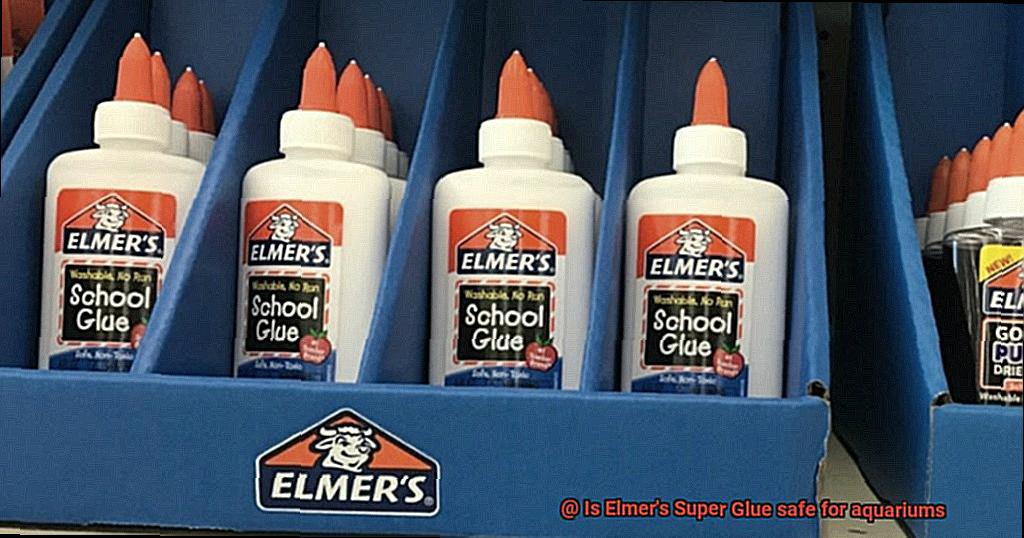
Firstly, Elmer’s Super Glue can release toxins into the water if not completely cured and dried before introducing fish or other aquatic animals into the tank. This could lead to harm or even death of your pets. To avoid this outcome, make sure to exercise caution and give the glue ample time to dry before adding any new inhabitants to your aquarium.
Another risk of using this adhesive is accidentally gluing living creatures together. This can occur if the glue isn’t applied carefully or comes into contact with an animal while still wet. Such an occurrence can cause serious harm or even death to the affected creature, making it crucial to avoid it at all costs.
Furthermore, Elmer’s Super Glue may not be strong enough to hold certain types of decorations or equipment in place, leading to objects falling and potentially injuring fish or damaging the tank itself. Always evaluate the strength requirements of any objects being glued in an aquarium and use an appropriate adhesive if necessary.
Finally, some species of fish may be sensitive to the chemicals found in Elmer’s Super Glue. If you have delicate or sensitive species in your tank, it’s best to avoid using this type of adhesive altogether. Instead, opt for a more natural bonding solution that won’t cause any harm.
Tips for Using Elmer’s Super Glue in an Aquarium
Elmer’s Super Glue can be a useful tool, but it’s essential to use it responsibly. Here are five tips to ensure the safety of your fish and the glue itself:
Use a small amount of glue
While it may be tempting to apply a lot of glue, using too much can release harmful chemicals into the water and potentially harm your aquatic pets. A little goes a long way with Elmer’s Super Glue.
Apply the glue outside of the water
To avoid accidental spills or contamination, it’s best to apply the glue outside of the aquarium. By removing the item from the tank, you can place it on a dry surface and apply the glue without risking its introduction into the aquarium.
Allow proper drying time
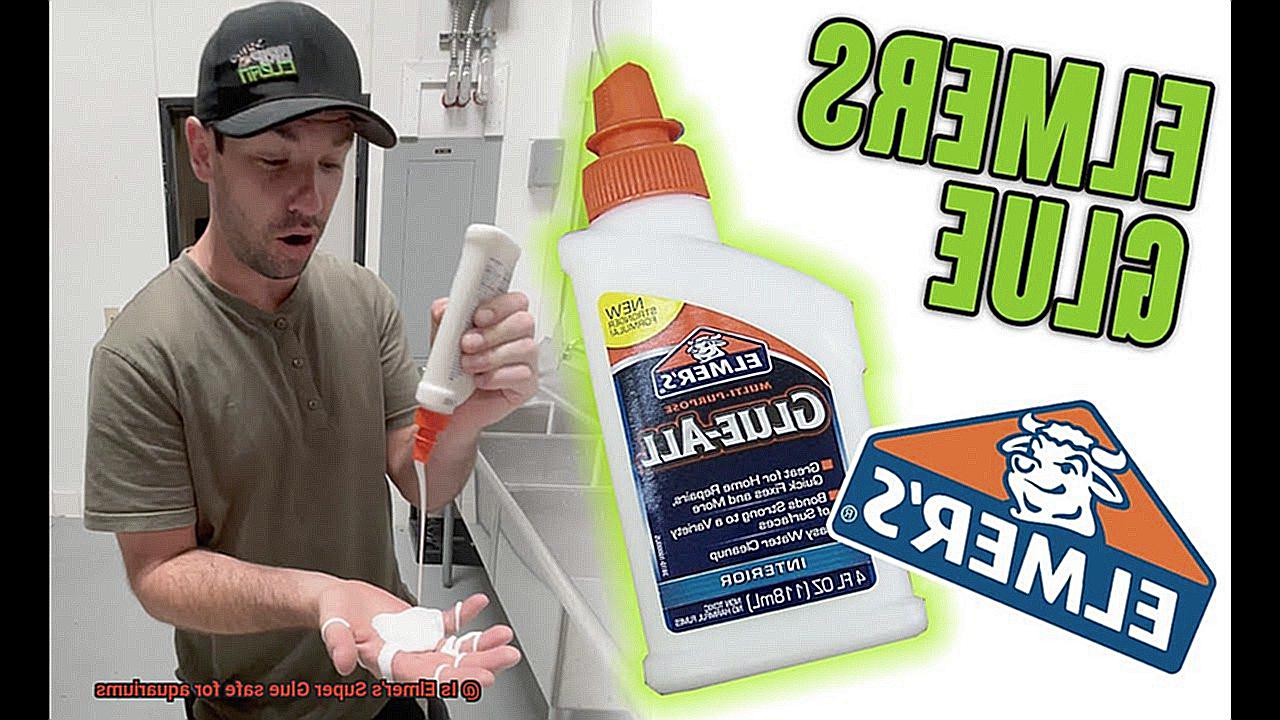
After applying the glue, allow enough time for it to dry before returning the item to the aquarium. This can ensure that any excess chemicals have evaporated and won’t harm the aquatic environment. Depending on the size and amount of glue used, drying time can take several hours.
Consider using other materials
Using rocks or sand in conjunction with Elmer’s Super Glue can help secure items in place while reducing the amount of glue needed. This can further minimize any potential risks associated with using adhesives in an aquarium.
Follow instructions carefully
Always read and follow the instructions on the packaging carefully. This will ensure that you are using Elmer’s Super Glue correctly and safely in your aquarium.
Alternatives to Elmer’s Super Glue for Aquarium Maintenance
Choosing the right adhesive is crucial for aquarium maintenance. Although Elmer’s Super Glue has been a popular choice in the past, there are now safer alternatives available on the market.
Here are some of the top alternatives to Elmer’s Super Glue that are safe for aquarium maintenance:
Cyanoacrylate-based glues (CA glues)
These types of glues are specifically designed for use in aquariums and are non-toxic to fish and other aquatic animals. They dry quickly and come in various viscosities, allowing you to choose the perfect consistency for the job. CA glues can be used to attach plants or coral fragments to rocks or other surfaces.
Two-part epoxy
This adhesive is also safe for aquatic life and can be used to attach decorations or repair cracks in aquariums. Although it takes longer to cure than CA glues and may require mixing before use, it forms a strong bond that can withstand water pressure and constant exposure.
Silicone sealant
Silicone sealant is commonly used for sealing leaks or attaching decorations in aquariums. However, not all silicone sealants are safe for aquatic use; it’s important to look for ones specifically labeled as safe for aquariums. Once applied, silicone sealant takes some time to cure completely, but once it does, it provides a secure bond that can last for years.
dMrqgq_JtdY” >
Conclusion
In conclusion, while Elmer’s Super Glue can be used in aquariums, it is crucial to exercise caution and follow proper guidelines. Choosing the right formulation and reading labels carefully are essential steps to ensure that the glue is safe for aquatic life. When applying the glue, remember to use it sparingly, allow it to dry completely before reintroducing objects back into the tank, and work in a well-ventilated area.
Despite these precautions, there are still potential risks associated with using Elmer’s Super Glue in an aquarium. If not fully cured and dried before introducing fish or other aquatic animals into the tank, the glue can release toxins into the water. Additionally, it may accidentally bond living creatures together or not provide enough strength to hold certain types of decorations or equipment in place.
Thankfully, safer alternatives exist on the market specifically designed for aquarium use. Cyanoacrylate-based glues (CA glues), two-part epoxy, and silicone sealant are all non-toxic options that won’t harm your aquatic friends.
Overall, maintaining a healthy and thriving aquarium environment requires careful consideration when choosing adhesives for repairs or decoration.

